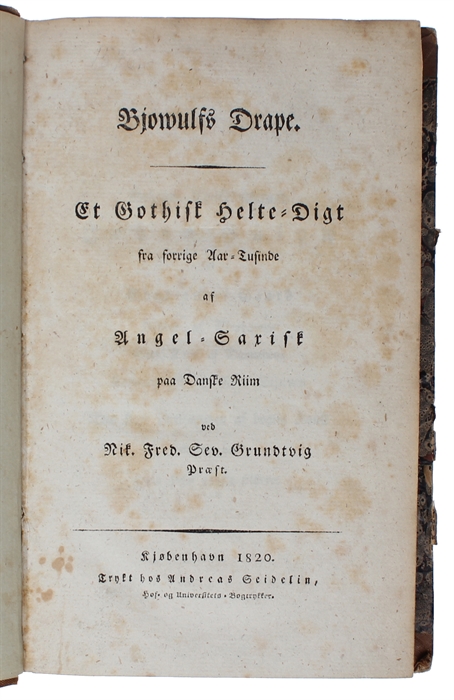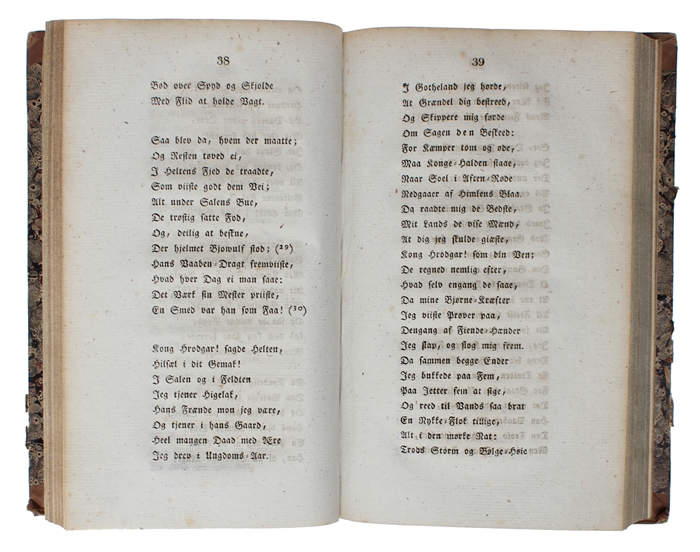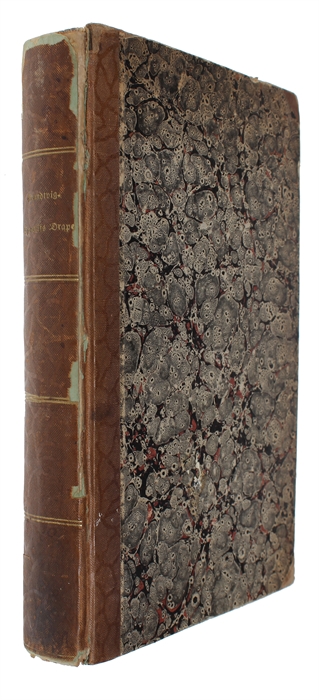BEOWULF - N.F.S. GRUNDTVIG (TRANSL.).
Bjowulfs Drape. Et Gothisk Helte=Digt fra forrige Aar=Tusinde af Angel = Saxisk paa danske Riim ved Nik. Fred. Sev. Grundtvig.
Kjøbenhavn, Andreas Seidelin, 1820.
8vo. In contemporary half cloth. Wear to hinges, missing some of the cloth, especially to top of spine. Some brownspotting to first leaves, but a good and sturdy copy. Printed on good paper and with good margins. LXXIV, 325 pp.
The highly important first translation into any modern language - and overall the second edition to appear - of the seminal Gothic tale that is Beowulf. This monumental work appeared merely five years after the first printing of the text (in Latin, 1815) and 13 years before the first English edition of Beowulf.
With this edition, Grundtvig founded the study of Beowulf.
"In the British Library there is a manuscript, its edges scorched and brittle, of "Beowulf", one of the very earliest poems in English and its first great literary masterpiece. It exists only in this one vellum codex and has survived for a thousand years, telling of an even earlier time, when the heroic age still was remembered by a Christian audience....
In 1786, an Icelandic scholar, came to the [British] Museum, looking for documents relating to Denmark, where the first part of "Beowulf" takes place. He made two complete copies of the manuscript, the first time this had been done, one by a professional copyist and the other, himself, and returned to Copenhagen to study them.
But then calamity. Denmark was occupied during the Napoleonic Wars and, in 1807, the English bombarded Copenhagen... [The] manuscript for an edition of "Beowulf", which just had been completed, was destroyed."
The two transcripts were saved, however, work on them was begun again, and in 1815 the first printed edition of "Beowulf" appeared, in Latin, printed in Copenhagen.
In 1820 the first translation of the seminal poem appeared, that into Danish, translated by the great Danish author Grundtvig, sparking the interest in Beowulf that persists until this day.
In 1833, the first English edition of Beowulf appeared.
Order-nr.: 60171



